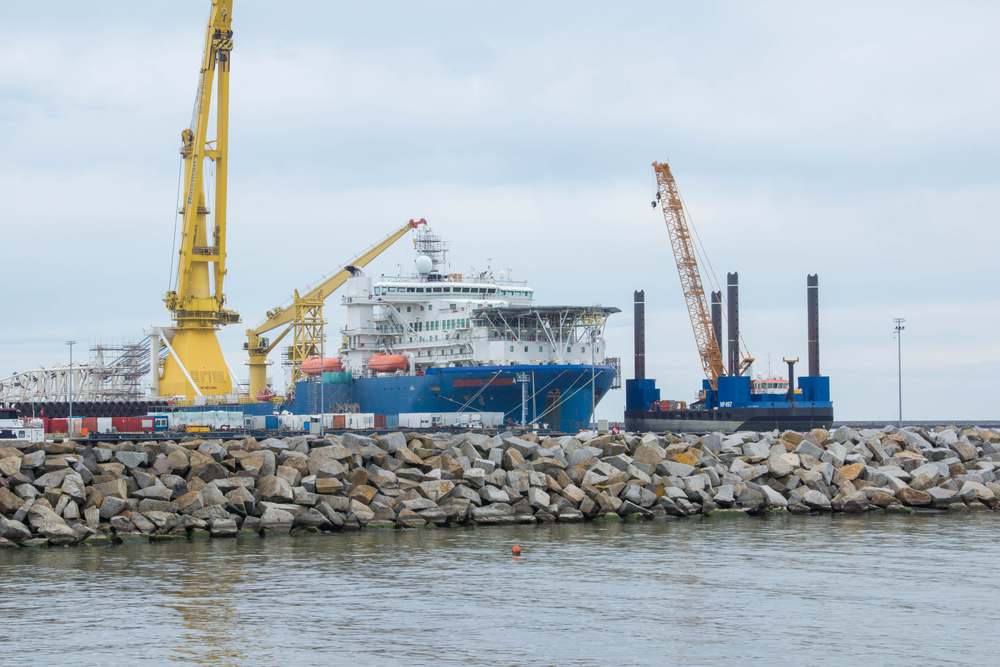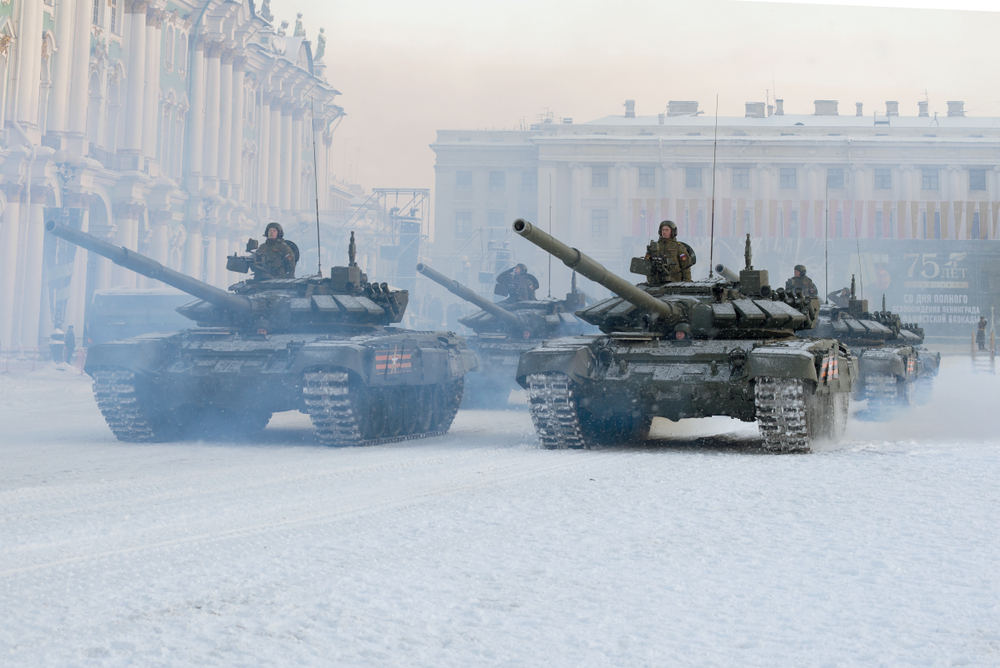As the war dragged on, demands for additional measures gained track. The most urgent one addressed a Western boycott of imports of oil and natural gas from Russia. Fossil fuels are by far the most important Russian export products. The argument to back up these demands was that income from these products was crucial for the Russian economy, including to fund the aggression against Ukraine. So countries opposing Russian behaviour should stop importing oil and natural gas from Russia, to stop the current war and to make it financially harder for Russia’s military in the future.
But how important is the export of oil and natural gas to the West for the Russian military, both for the conduct of the war in the Ukraine and beyond? Lets go through answers step by step, beginning with the economy in general and than focus on the military and the current war.
With respect to the Russian economy, the answer seems to be obvious: very important.
Oil, oil products and natural gas have had a share of about 45 percent of total Russian exports during the last ten years, with large variations in volumes and particularly values from year to year. European countries (to be exact: European members of the OECD) are the main purchasers of Russian oil and gas. Almost half of Russian exports of oil and oil products, and 75 Percent of Russian gas exports has gone to these European countries.
Exports of oil and gas are also the most important sources for the Russian government’s budget, both directly through taxes and other levies on imports and indirectly through government involvement in the oil and gas industry as well as taxation of private income made in the industry. About 40 percent of government revenue comes from the oil and gas sector’s exports.
These are impressive numbers, indicating a high degree of dependency on the export oil and gas and thus potential for high impact of a Western boycott of Russian oil and gas. However, caution is advised, for three main reasons.
One, while Russia’s economy is often seen as a case of an export dependent resource rent case, there is more to it. The share of exports of oil and gas in Russian national income has been less than 15 percent during the mentioned time period. A total loss of oil and gas exports to Western and thus mostly European (the US is not a major Russian customer) exports would lead to a direct reduction of Russian national income by about 9 percent. The income multiplier would roughly double that effect. That would be a heavy blow to the Russian economy but not totally cripple it.
Two, for more than a decade Russia has run high export surpluses. The average over the last 10 years has been about $100 billion per year, equal to about 25 percent of Russian exports. A good part of the money earned through the balance of trade surplus has been stacked away by the Russian Central Bank as currency reserves and was not made economically productive. A loss of exports corresponding to this surplus would have a reduced negative income effect on the Russian economy.
Three, there are major difference between oil and gas with respect to evading a boycott by European countries. It is difficult for Russia to increase exports of gas to non-European customers – transport capacity of LNG terminals as well as in pipelines to other countries is limited. This is quite different for oil and oil products. While there are also pipelines, more than 80 percent of Russian oil and oil products is transported by ship, to European but also to other countries. Transport to customers, such as China and India, potentially substituting for loss of exports of oil and oil products to European countries is much easier than for gas.

This is quite significant for calculating the damage to the Russian economy of a boycott of oil and gas by European countries. On average over the last few years, the ratio between oil and oil products on the one hand and gas on the other was about 1 to 3 (with fluctuations due to different patterns in price changes).
Lets assume that Russia would not be able to compensate the loss of gas exports to European countries, but would be able to ship half of the oil that European countries would not want any more to other customers. This would reduce the direct effect of a European oil and gas boycott by about 3 percent of national income to about 6 percent of national income. A gas boycott alone would result in direct income loss of less than 3 percent of national income. Indirect effects would likely double these numbers.
Lets now turn to the funding of the Russian military. Data on military spending by Russia is not very transparent. Official data is not reliable and a good part of it is secret. Still, estimates are possible and do not differ much. The Stockholm International Peace Research Institute, for instance, estimated a military burden – the share of military spending in national income – ranging between 3,4 and 5,4 percent during the years 2010-2020, averaging 4.1 percent, almost identical to the CIA’s estimate.
This is a comparatively high military burden, well above the global average, but not far above the level of the United States and lower than many countries in the Middle East. The same is also true for military spending as a share in government spending. Here the numbers for Russia ranged between 10.3 and 14.8 percent, averaging 11.8 percent.
Would Russia have been less able to find the money for its military if it had not had oil and gas exports to European countries during the last decade? A simple calculation suggests caution to adopt this view.
In the above scenario of partial Russian substitution of oil and gas exports to European countries, national income would have been about 12 percent lower and government spending by about 20 percent. This would have increased the average military burden to 4.6 percent of national income and the share in government spending to 14.1 percent. Adjustment in terms of governments spending, such as cutting non-military government items, or increase in government revenue would have been necessary. But there would have been no fundamental difficulty to fund military expenditures.

Finally, there is question of the funding of the current war. Much of the costs of the Russian attack are already sunk, as military equipment and ammunition was funded out of the regular budget in earlier years. Salaries of regular soldiers are covered in the current budget, unless additional personal is recruited. While there are reports of hiring private military contractors, numbers seem not to be large compared to the number of regular soldiers involved in the armed attack. Obviously, as the intervention drags on, additional costs will be incurred for replacement of equipment and ammunition, non-regular operational costs, e.g. for logistics, and treatment of wounded soldiers. There are no current estimates of these costs, which are highly dependent on the length of the Russian military campaign.
What can be estimated, however, is that the costs in foreign exchange are likely not to be very high. Russian soldiers are paid in Ruble, and the manufacturing of military equipment and ammunition for the Russian armed forces is occurring in Russian enterprises, with employees also paid in Ruble. While there are indications that some parts, e.g. certain electronics, are imported, overall the cost of such imports seem to negligible. The low import content of Russian arms production is partly a legacy of Soviet times. But it also results from Western sanctions of exports of high tech goods after the Russian annexation of Crimea in 2014, which stopped most of earlier projects in the Russian arms industry to integrate components from companies in Western countries into Russian military systems.
A European boycott of oil and gas from Russia would substantially hurt the Russian economy, a stop of import of oil and oil products substantially more than a stop of the import of gas. But it is very unlikely that it would have a direct financial effect on the conduct of the current armed attack on Ukraine. Probably it would also not prevent Russia from continuing to fund its military at past levels. This would require that its primary effect of further weakening the Russian economy in general beyond other sanctions would translate into policy change. The experience with past economic sanctions indicates that this is possible but not regularly the case.